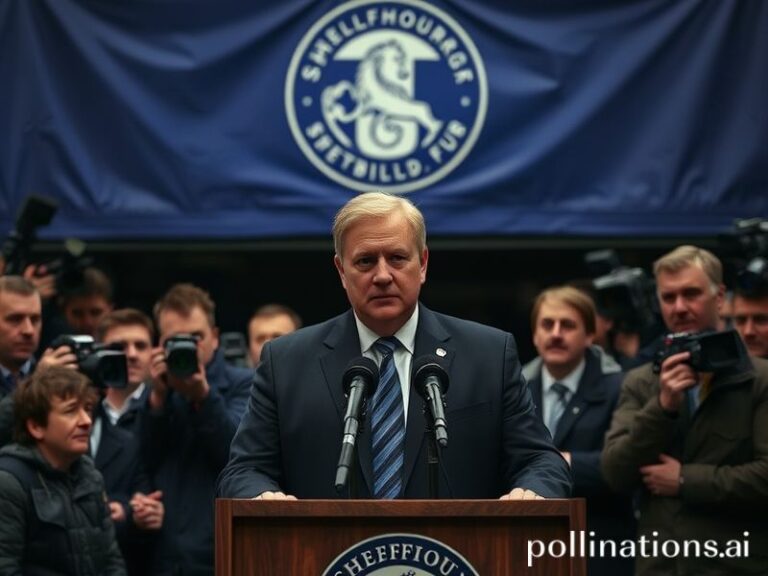Maya Jama: Britain’s Cheeky New Soft-Power Export, Now Sponsored by Heartbreak and SPF 50
If you squint hard enough from the banks of the Bosporus, the Thames looks like any other river: muddy, overpriced, and clotted with influencers pretending to be statesmen. Yet somewhere along its murky bend, Maya Jama has become the latest British export packaged, shrink-wrapped, and air-freighted to the rest of us as proof that the empire still excels at two things: self-mythology and reality television.
For the uninitiated—bless your monastic Wi-Fi—Jama is a 29-year-old Bristol-born presenter who has parlayed a knack for smiling through chaos into a transcontinental brand. She fronted “Love Island,” the UK’s most successful psychological experiment since the Opium Wars, and has now been dispatched to host its winter spinoff in South Africa. The assignment is billed as “global expansion.” Translation: the same bikinis, the same heartbreak, but with zebras in the background so Europeans can pretend they’re on a gap year rather than a content treadmill.
The international significance? Consider it a soft-power vaccine. While Beijing builds ports and Washington ships drones, London still traffics in cheekbones and banter. Jama, with Somali-Swedish heritage and a surname borrowed from a Caribbean father she barely knew, is the perfect vessel: multicultural enough for glossy UN pamphlets, yet sufficiently light-entertainment to avoid any awkward questions about reparations. She is, in diplomatic terms, a non-threatening weapon of mass distraction.
Across five continents, streaming services have noticed that nothing travels like the promise of easy romance underwritten by minimal clothing. From Seoul to São Paulo, viewers binge “Love Island” the way previous generations inhaled Dallas or Dynasty—only now the cliff-hangers are sponsored by teeth-whitening strips. Jama’s role is to coo sympathy while steering contestants toward emotional landmines, a job once reserved for Greek choruses or UN peacekeepers. The difference is scale: her Instagram footprint alone (2.7 million and metastasizing) could sway elections in several micronations, provided those nations prioritized cheek contouring over fiscal policy.
Still, the cynic in Dave’s mailroom can’t help but admire the efficiency. In an era when supply chains collapse and glaciers file for early retirement, at least one commodity remains reliably profitable: other people’s heartbreak, distilled into 45-minute episodes and subtitled in thirty-two languages. Jama, ever the courteous host, describes her new gig as “a dream come true.” One suspects the dream in question belongs less to her than to a consortium of venture capitalists who’ve realized that geopolitical angst is best monetized through poolside recouplings.
Meanwhile, commentators from Lagos to Lisbon invoke her ascent as evidence that meritocracy is alive and well. The logic runs: if a council-estate kid can become the face of a multimillion-dollar franchise, surely anyone can bootstrap themselves into a villa full of inflatables. This narrative conveniently overlooks the minor footnote that Jama’s agent is also married to a senior ITV executive, but why let structural privilege spoil a perfectly uplifting parable? After all, Horatio Alger is more digestible when retouched by a ring light.
As COP delegates in Dubai tally carbon offsets by PowerPoint, the Love Island jet ferries another cohort of abdominal muscles to Cape Town, burning roughly the annual emissions of a Maldivian nation. Jama will greet them in recycled swimwear, because sustainability is now part of the script. Expect tearful confessions about eco-anxiety between sponsored shots of prosecco—proof that late capitalism can monetize even the apocalypse, provided you throw in a hot tub.
In the end, Maya Jama is neither heroine nor villain; she is merely the latest iteration of a very old British tradition: selling the weather back to the colonies with better lighting. Whether you find that comforting or catastrophic probably depends on which side of the screen you’re sitting—and how recently your own passport was stamped “economy.” Either way, the sun never sets on a well-managed brand, even when the planet itself is busy overheating.







